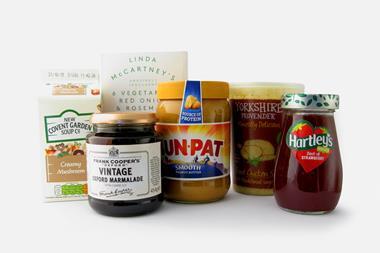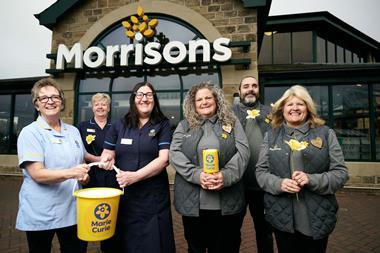The news that the OFT and its band of legal eagles will stick to the letter of Stephen Byers' law and only enforce a trading code across the big five multiples, rather than all of them, will disappoint many.
It seems ridiculous, particularly to the UK's army of medium to small food and drink suppliers, that the code will just apply to Tesco, Sainsbury, Safeway, Asda and Somerfield. Indeed, my mailbag suggests part of the buyer bullying in recent years has been in the smaller multiple ranks.
So, provided there are no howls of protest from the Food and Drink Federation and the NFU when they study the final draft, the legally binding code will land on the desks of the top five next month.
The code is a small, but important, political necessity for Blair and Co. For as we've said before, it's the only chance for the DTI to save face after its humiliating defeat in the rip-off in grocery issue.
And since the General Election campaign was given its formal, official send-off on BBC TV's Breakfast with Frost programme last Sunday, we can expect the code to be proclaimed as one of New Labour's "real achievements" when Byers and his mates hit the campaign trail between now and May 3.
However, the DTI secretary's stirring pre-election messages to those who toil in the shires would have had far more clout if he had made the code legally binding on all multiples.
But surely it's not too late to correct that anomaly? Is it beyond the wit of Byers and his legal eagles to include a sunset clause in the final version? This could propose a review of the whole thing in, say, two years, by the then secretary of state. If it was felt the big five had done a good job in adhering to the rules, the code could then be relaunched on a voluntary industry-wide basis.
That way everyone, to use New Labour's over-worked cliché, would enjoy a level playing field. Especially the flat cap and Barbour brigade from whom Blair and Co hope to coax so many votes.
Clive Beddall, Editor
{{OPINION }}
Close menu
- Home
- Retail & Wholesale
-
Products & Suppliers
- Back to parent navigation item
- Products & Suppliers
-
Product Categories:
- Back to parent navigation item
- Product Categories:
- Alcoholic drinks
- Bakery
- Cereals & breakfast
- Cheese
- Chicken & poultry
- Chocolate
- Confectionery
- Crisps, nuts & snacks
- Dairy
- Fish
- Fresh produce
- Frozen
- Household
- Meat
- Own Label
- Sauces & condiments
- Seasonal
- Soft drinks
- Vaping
- Vegan & plant-based
- World foods
- Suppliers
- People
- Reports & Data
-
Topics A-Z
- Back to parent navigation item
- Topics A-Z
-
Popular topics:
- Back to parent navigation item
- Popular topics:
- Cost of living crisis
- Crime
- Deposit Return Schemes
- Finance
- Government & Regulation
- Health
- Inflation
- Loyalty
- Marketing
- Mergers & Acquisitions
- New Product Development
- Sourcing
- Supply chain
- Sustainability & environment
- Technology
- Ultra Processed Foods
- Vaping
- A-Z all topics
- Content by type:
- Events
- Ask iA (beta)
- Subscribe now
Sign in to comment on this article
Not logged in before? Register for FREE guest access today.
You will be able to:
- Read more stories
- Receive daily newsletters
- Comment on stories
Advert















No comments yet